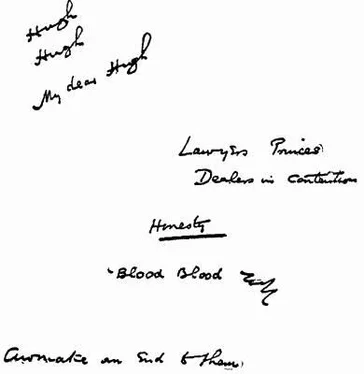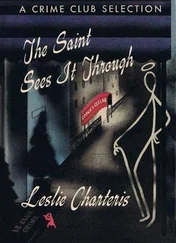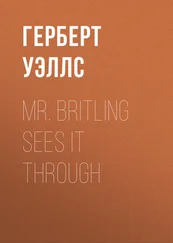Herbert Wells - Mr. Britling Sees It Through
Здесь есть возможность читать онлайн «Herbert Wells - Mr. Britling Sees It Through» весь текст электронной книги совершенно бесплатно (целиком полную версию без сокращений). В некоторых случаях можно слушать аудио, скачать через торрент в формате fb2 и присутствует краткое содержание. Жанр: Классическая проза, на английском языке. Описание произведения, (предисловие) а так же отзывы посетителей доступны на портале библиотеки ЛибКат.
- Название:Mr. Britling Sees It Through
- Автор:
- Жанр:
- Год:неизвестен
- ISBN:нет данных
- Рейтинг книги:4 / 5. Голосов: 1
-
Избранное:Добавить в избранное
- Отзывы:
-
Ваша оценка:
- 80
- 1
- 2
- 3
- 4
- 5
Mr. Britling Sees It Through: краткое содержание, описание и аннотация
Предлагаем к чтению аннотацию, описание, краткое содержание или предисловие (зависит от того, что написал сам автор книги «Mr. Britling Sees It Through»). Если вы не нашли необходимую информацию о книге — напишите в комментариях, мы постараемся отыскать её.
Mr. Britling Sees It Through — читать онлайн бесплатно полную книгу (весь текст) целиком
Ниже представлен текст книги, разбитый по страницам. Система сохранения места последней прочитанной страницы, позволяет с удобством читать онлайн бесплатно книгу «Mr. Britling Sees It Through», без необходимости каждый раз заново искать на чём Вы остановились. Поставьте закладку, и сможете в любой момент перейти на страницу, на которой закончили чтение.
Интервал:
Закладка:
Such lapses from knowledge to faith are perhaps necessary that human heroism may be possible....
His conception of his own share in the great national uprising was a very modest one. He was a writer, a footnote to reality; he had no trick of command over men, his rôle was observation rather than organisation, and he saw himself only as an insignificant individual dropping from his individuality into his place in a great machine, taking a rifle in a trench, guarding a bridge, filling a cartridge—just with a brassard or something like that on—until the great task was done. Sunday night was full of imaginations of order, of the countryside standing up to its task, of roads cleared and resources marshalled, of the petty interests of the private life altogether set aside. And mingling with that it was still possible for Mr. Britling, he was still young enough, to produce such dreams of personal service, of sudden emergencies swiftly and bravely met, of conspicuous daring and exceptional rewards, such dreams as hover in the brains of every imaginative recruit....
The detailed story of Mr. Britling's two days' search for some easy and convenient ladder into the service of his threatened country would be a voluminous one. It would begin with the figure of a neatly brushed patriot, with an intent expression upon his intelligent face, seated in the Londonward train, reading the war news—the first comforting war news for many days—and trying not to look as though his life was torn up by the roots and all his being aflame with devotion; and it would conclude after forty-eight hours of fuss, inquiry, talk, waiting, telephoning, with the same gentleman, a little fagged and with a kind of weary apathy in his eyes, returning by the short cut from the station across Claverings park to resume his connection with his abandoned roots. The essential process of the interval had been the correction of Mr. Britling's temporary delusion that the government of the British Empire is either intelligent, instructed, or wise.
The great "Business as Usual" phase was already passing away, and London was in the full tide of recruiting enthusiasm. That tide was breaking against the most miserable arrangements for enlistment it is possible to imagine. Overtaxed and not very competent officers, whose one idea of being very efficient was to refuse civilian help and be very, very slow and circumspect and very dignified and overbearing, sat in dirty little rooms and snarled at this unheard-of England that pressed at door and window for enrolment. Outside every recruiting office crowds of men and youths waited, leaning against walls, sitting upon the pavements, waited for long hours, waiting to the end of the day and returning next morning, without shelter, without food, many sick with hunger; men who had hurried up from the country, men who had thrown up jobs of every kind, clerks, shopmen, anxious only to serve England and "teach those damned Germans a lesson." Between them and this object they had discovered a perplexing barrier; an inattention. As Mr. Britling made his way by St. Martin's Church and across Trafalgar Square and marked the weary accumulation of this magnificently patriotic stuff, he had his first inkling of the imaginative insufficiency of the War Office that had been so suddenly called upon to organise victory. He was to be more fully informed when he reached his club.
His impression of the streets through which he passed was an impression of great unrest. There were noticeably fewer omnibuses and less road traffic generally, but there was a quite unusual number of drifting pedestrians. The current on the pavements was irritatingly sluggish. There were more people standing about, and fewer going upon their business. This was particularly the case with the women he saw. Many of them seemed to have drifted in from the suburbs and outskirts of London in a state of vague expectation, unable to stay in their homes.
Everywhere there were the flags of the Allies; in shop windows, over doors, on the bonnets of automobiles, on people's breasts, and there was a great quantity of recruiting posters on the hoardings and in windows: "Your King and Country Need You" was the chief text, and they still called for "A Hundred Thousand Men" although the demand of Lord Kitchener had risen to half a million. There were also placards calling for men on nearly all the taxicabs. The big windows of the offices of the Norddeutscher Lloyd in Cockspur Street were boarded up, and plastered thickly with recruiting appeals.
At his club Mr. Britling found much talk and belligerent stir. In the hall Wilkins the author was displaying a dummy rifle of bent iron rod to several interested members. It was to be used for drilling until rifles could be got, and it could be made for eighteen pence. This was the first intimation Mr. Britling got that the want of foresight of the War Office only began with its unpreparedness for recruits. Men were talking very freely in the club; one of the temporary effects of the war in its earlier stages was to produce a partial thaw in the constitutional British shyness; and men who had glowered at Mr. Britling over their lunches and had been glowered at by Mr. Britling in silence for years now started conversations with him.
"What is a man of my sort to do?" asked a clean-shaven barrister.
"Exactly what I have been asking," said Mr. Britling. "They are fixing the upward age for recruits at thirty; it's absurdly low. A man well over forty like myself is quite fit to line a trench or guard a bridge. I'm not so bad a shot...."
"We've been discussing home defence volunteers," said the barrister. "Anyhow we ought to be drilling. But the War Office sets its face as sternly against our doing anything of the sort as though we were going to join the Germans. It's absurd. Even if we older men aren't fit to go abroad, we could at least release troops who could."
"If you had the rifles," said a sharp-featured man in grey to the right of Mr. Britling.
"I suppose they are to be got," said Mr. Britling.
The sharp-featured man indicated by appropriate facial action and head-shaking that this was by no means the case.
"Every dead man, many wounded men, most prisoners," he said, "mean each one a rifle lost. We have lost five-and-twenty thousand rifles alone since the war began. Quite apart from arming new troops we have to replace those rifles with the drafts we send out. Do you know what is the maximum weekly output of rifles at the present time in this country?"
Mr. Britling did not know.
"Nine thousand."
Mr. Britling suddenly understood the significance of Wilkins and his dummy gun.
The sharp-featured man added with an air of concluding the matter: "It's the barrels are the trouble. Complicated machinery. We haven't got it and we can't make it in a hurry. And there you are!"
The sharp-featured man had a way of speaking almost as if he was throwing bombs. He threw one now. "Zinc," he said.
"We're not short of zinc?" said the lawyer.
The sharp-featured man nodded, and then became explicit.
Zinc was necessary for cartridges; it had to be refined zinc and very pure, or the shooting went wrong. Well, we had let the refining business drift away from England to Belgium and Germany. There were just one or two British firms still left.... Unless we bucked up tremendously we should get caught short of cartridges.... At any rate of cartridges so made as to ensure good shooting. "And there you are!" said the sharp-featured man.
But the sharp-featured man did not at that time represent any considerable section of public thought. "I suppose after all we can get rifles from America," said the lawyer. "And as for zinc, if the shortage is known the shortage will be provided for...."
The prevailing topic in the smoking-room upstairs was the inability of the War Office to deal with the flood of recruits that was pouring in, and its hostility to any such volunteering as Mr. Britling had in mind. Quite a number of members wanted to volunteer; there was much talk of their fitness; "I'm fifty-four," said one, "and I could do my twenty-five miles in marching kit far better than half those boys of nineteen." Another was thirty-eight. "I must hold the business together," he said; "but why anyhow shouldn't I learn to shoot and use a bayonet?" The personal pique of the rejected lent force to their criticisms of the recruiting and general organisation. "The War Office has one incurable system," said a big mine-owner. "During peace time it runs all its home administration with men who will certainly be wanted at the front directly there is a war. Directly war comes, therefore, there is a shift all round, and a new untried man—usually a dug-out in an advanced state of decay—is stuck into the job. Chaos follows automatically. The War Office always has done this, and so far as one can see it always will. It seems incapable of realising that another man will be wanted until the first is taken away. Its imagination doesn't even run to that."
Читать дальшеИнтервал:
Закладка:
Похожие книги на «Mr. Britling Sees It Through»
Представляем Вашему вниманию похожие книги на «Mr. Britling Sees It Through» списком для выбора. Мы отобрали схожую по названию и смыслу литературу в надежде предоставить читателям больше вариантов отыскать новые, интересные, ещё непрочитанные произведения.
Обсуждение, отзывы о книге «Mr. Britling Sees It Through» и просто собственные мнения читателей. Оставьте ваши комментарии, напишите, что Вы думаете о произведении, его смысле или главных героях. Укажите что конкретно понравилось, а что нет, и почему Вы так считаете.






